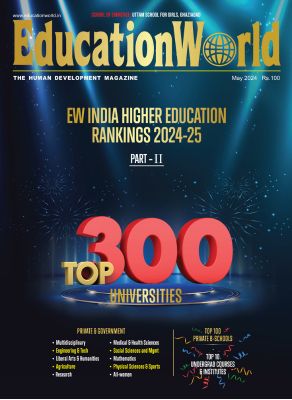COGNOSCENTI WITHIN THE academic and NGO world in the national capital are shocked by an order of the state government issued under the Right to Education (RTE) Act, 2009, declaring the K-X Deepalaya School, Sanjay Colony, in the Okhla industrial area, illegal.
As a consequence, if it continues to declare itself a ˜school™ and offers classes as such, its promoters and principals can be fined up to Rs.10,000-100,000 per day. Threatened with this draconian punishment, the management of this private budget school has been obliged to issue a notice to parents that it is no longer a ˜school™ but a learning centre.
œThe country™s six Deepalaya schools were promoted with the objective of providing affordable education to the poorest of the poor. Parents of poor households want their children to attend a fully-fledged school. Therefore when they were informed that Deepalaya, Sanjay Colony, had been transformed into a learning centre, the enrolment fell from 700 to 200 students, says T.K. Matthew, the highly reputed managing trustee of the Deepalaya Trust (estb. 1979) which has promoted four K-X private budget schools in Delhi and one each in Haryana and Uttar Pradesh with an aggregate enrolment of 3,500 girls and boys.
The derecognition of one of the three Deepalaya schools has come as a shock to right-thinking people in the national capital, because over the past 35 years since it was promoted as an education NGO by educationist T.K. Matthew and several associates in 1979, the Deepalaya Education Society (motto: ˜Give every child a chance™) has become synonymous with affordable education excellence. For instance, for a monthly tuition fee of Rs.1,300, the now derecognised Deepalaya, Sanjay Colony, provides its students 11 smart classrooms with audio-visual aids, adequate furniture, ramps for differently-abled children, separate, clean toilets for boys and girls, safe drinking water, a well-stocked library and in-class libraries ” facilities which most government and even private schools can™t match.
However, under provisions of the RTE Act 2009, which prescribes stringent infrastructure, teacher-pupil ratio and other norms for all private schools under s. 19 and the Schedule of the Act, three of the four Deepalaya schools in Delhi have been declared non-compliant. Moreover, these schools have been declared in breach of the Delhi State Education Act, 1973, which was amended last year to make it mandatory for all ” including private budget ” schools to pay salaries prescribed by the Sixth Pay Commission to teachers (Rs.23,000 per month at the entry level) ” an impossibility for low-cost budget schools levying tuition fees of less than Rs.1,500 per month.
Thus the Deepalaya schools have been hit by a double whammy with one derecognised by the Delhi state government which has withheld the grant of a recognition certificate under s.18 of the RTE Act. œWe have made every effort to explain our position and obtain government recognition for our schools. But all our applications have either been rejected or remain unanswered, says Matthew, who has become a prime example and icon of low-cost private budget schools countrywide.
With private budget schools of considerable vintage providing CBSE and NCERT mapped K-X education highly appreciated by aspirational lower middle class migrants flowing into Delhi being declared illegal by local education authorities, Matthew discerns a conspiracy to keep the poor poor. œShutting down private budget schools makes sense only if the infrastructure and learning outcomes of government schools are first improved to Deepalaya standards, in which case I™ll happily shut down all our schools because our motivation is not profit but to give every child a chance to better her life through quality education, says Matthew.
The ill-considered RTE Act, and s.19 in particular, drafted by legal eagle and former Union HRD minister Kapil Sibal (who has smoothly resumed his high-end law practice in the Supreme Court after throwing the school education system into disarray), is causing huge problems and disruption within the hitherto relatively smoothly functioning K-12 system.
Baladevan Rangaraju, director of India Institute, a Delhi-based think tank (estb. 2010), stresses the importance of evidence-based policy-making. œAccording to our estimates almost 3,000 private budget schools have already been forcibly shut down across the country with another 14,400 issued closure notices under s.19, jeopardising the future of 1.2 million children. Even as per government data, implementation of s.19 will deprive 4.7 million children in private budget schools of education. With government schools conducting business as usual and under no pressure to improve learning outcomes, it™s important for the new government to review the RTE Act to acknowledge the importance of private budget schools and devise pragmatic rules to improve and enable them, says Rangaraju.
According to a special report feature in EducationWorld (August 2014), over 300,000 private budget schools countrywide with a massive enrolment of 60 million children are endangered by s.19 of the RTE Act. It™s a measure of middle class and public apathy that the detailed narrative failed to arouse a murmur of protest.
Somdev Thakur (Delhi)
Delhi: Public apathy victims
EducationWorld March 15 | EducationWorld


























